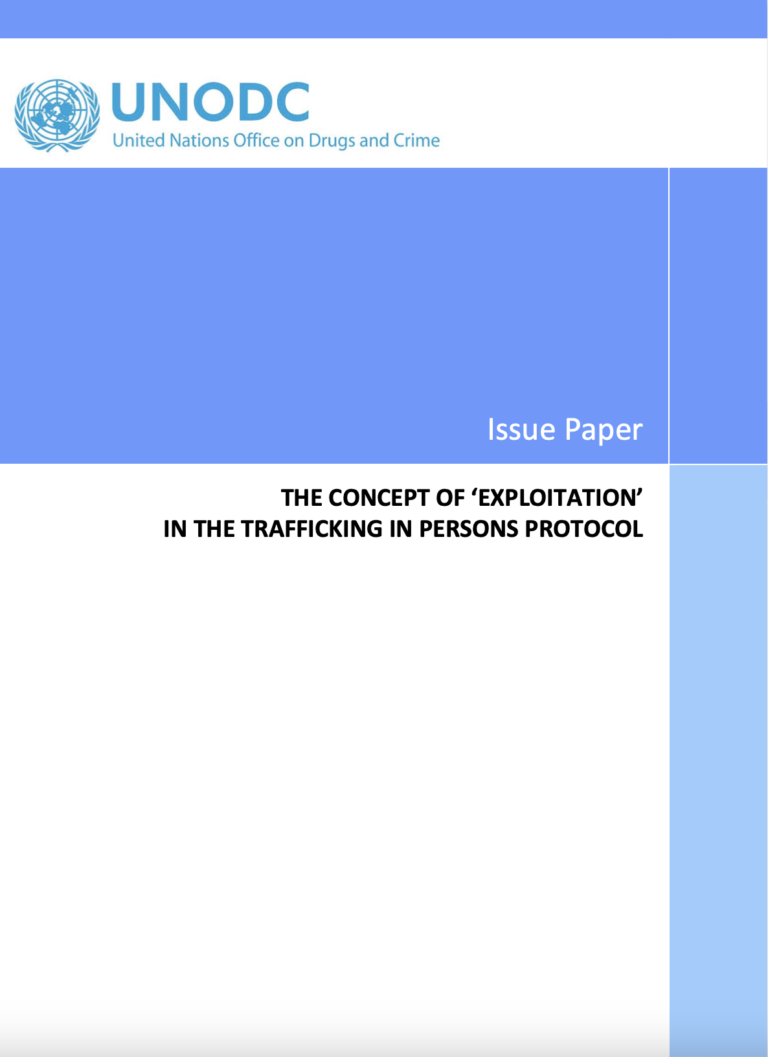Article 3(a) of the United Nations Protocol to Prevent, Suppress and Punish Trafficking in Persons, Especially Women and Children, supplementing the United Nations Convention against Transnational Organized Crime (Trafficking in Persons Protocol) defines trafficking in persons as constituting three elements: (i) an “action”, being recruitment, transportation, transfer, harbouring or receipt of persons; (ii) a “means” by which that action is achieved (threat or use of force or other forms of coercion, abduction, fraud, deception, abuse of power or a position of vulnerability, and the giving or receiving of payments or benefits to achieve consent of a person having control over another person); and (iii) a “purpose” (of the action/means): namely, exploitation. Exploitation is not specifically defined in the Protocol but stipulated to include, at a minimum: “the exploitation of the prostitution of others or other forms of sexual exploitation, forced labour or services, slavery or practices similar to slavery, servitude or the removal of organs.” The definition further clarifies in Article 3(b), that consent of the victim to the intended exploitation is irrelevant when any of these ‘means’ have been used. All three elements (act, means and purpose) must be present to constitute ‘trafficking in persons’ in the Trafficking in Persons Protocol. The only exception is that when the victim is a child, the ‘means’ element is not part of the definition.
The Protocol definition has been widely embraced by States and the international community. However, over the past decade it has become evident that questions remain about certain aspects of that definition and its practical application. This is important because to characterize certain conduct as ‘trafficking’ has significant and wide-ranging consequences for the alleged perpetrators of that conduct, and for the alleged victims. There may also be consequences for States – both internally in terms of constructing a national understanding of the nature and extent of the ‘trafficking problem’, and externally, in relation to various institutions and mechanisms that concern themselves with States’ response to ‘trafficking’. The potential breadth and narrowness of the definition has raised several issues to which States have taken quite different positions. Those who support a conservative or even restrictive interpretation of the concept of trafficking consider that too wide a definition may encompass practices that do not meet the high seriousness threshold expected of ‘trafficking’.

